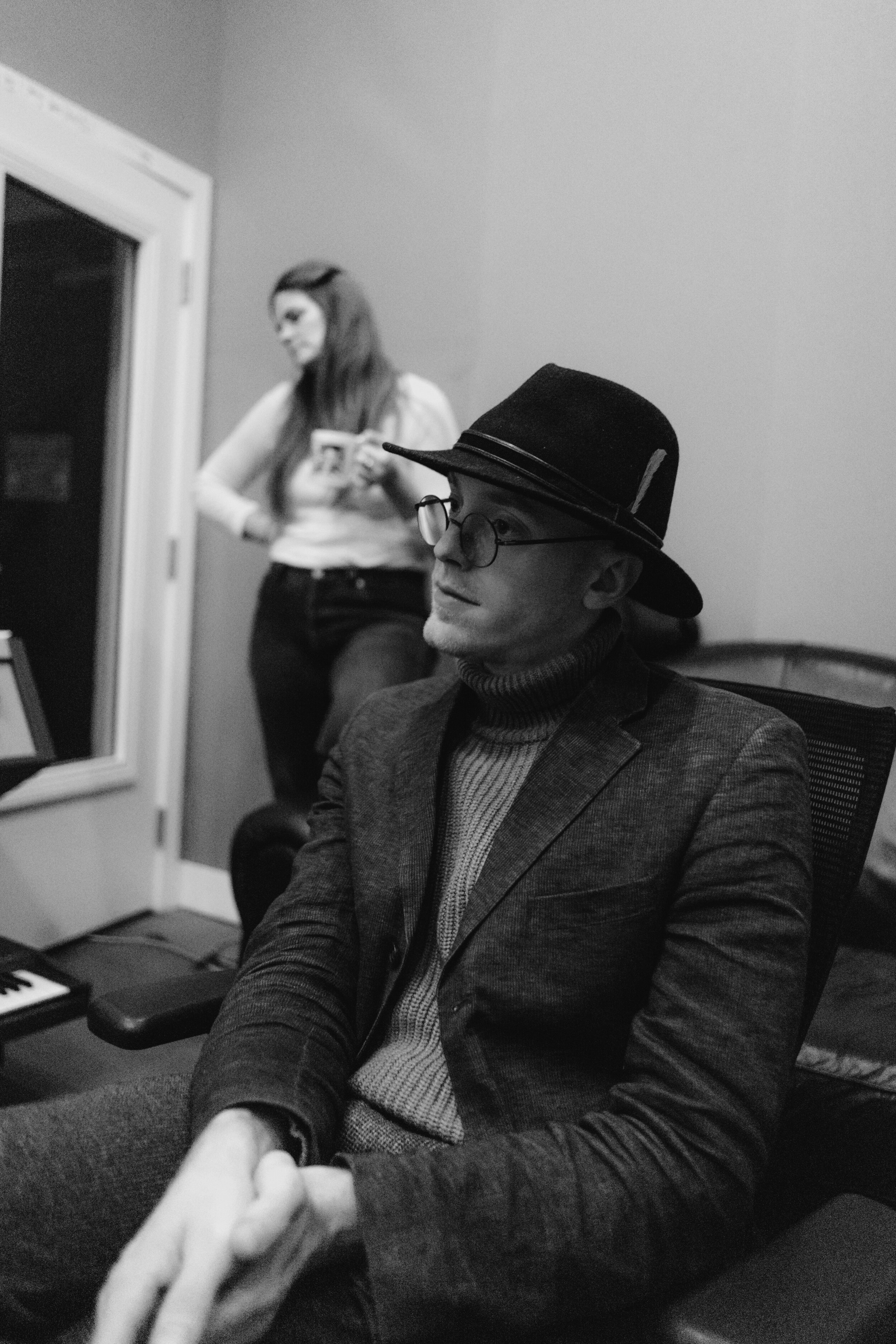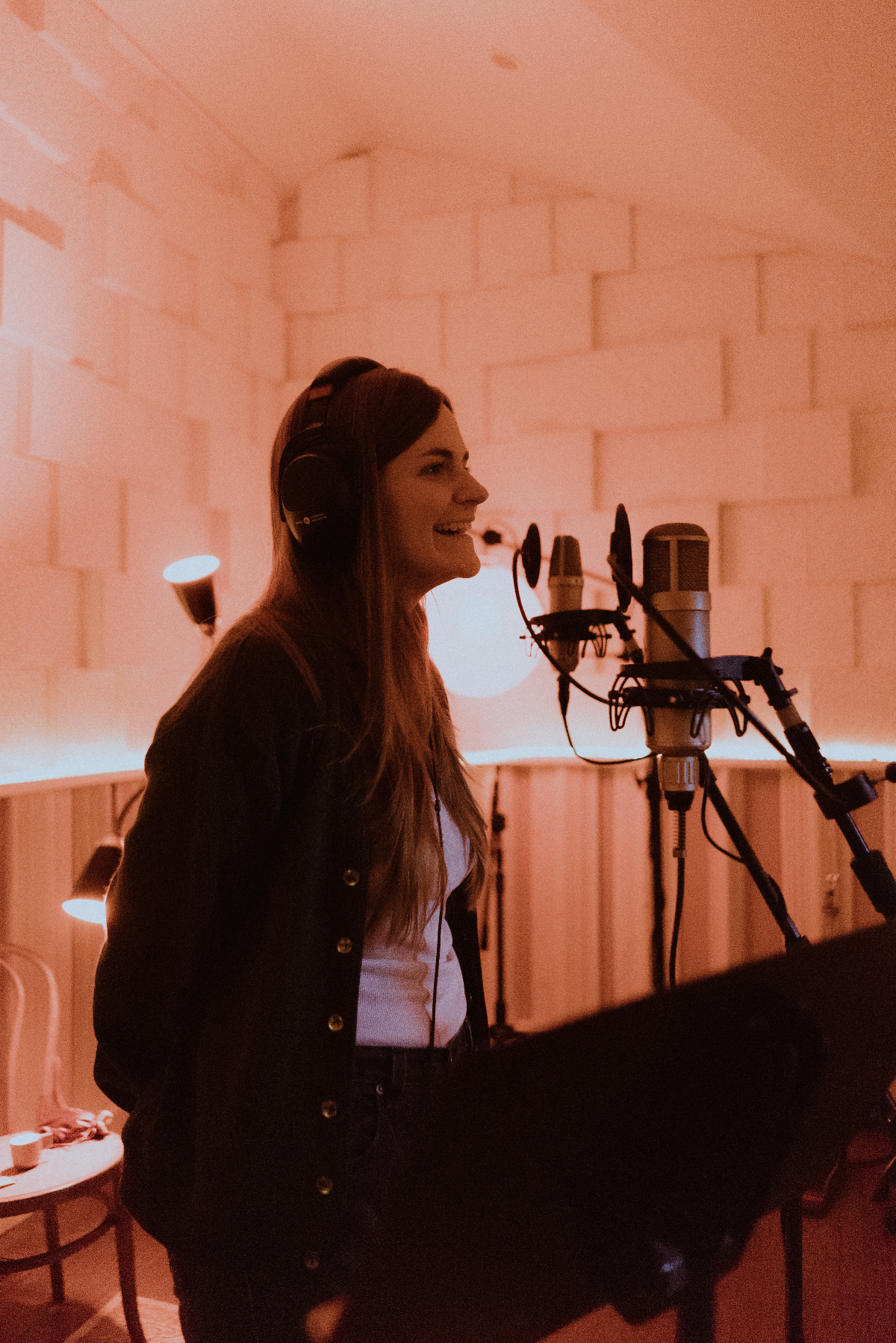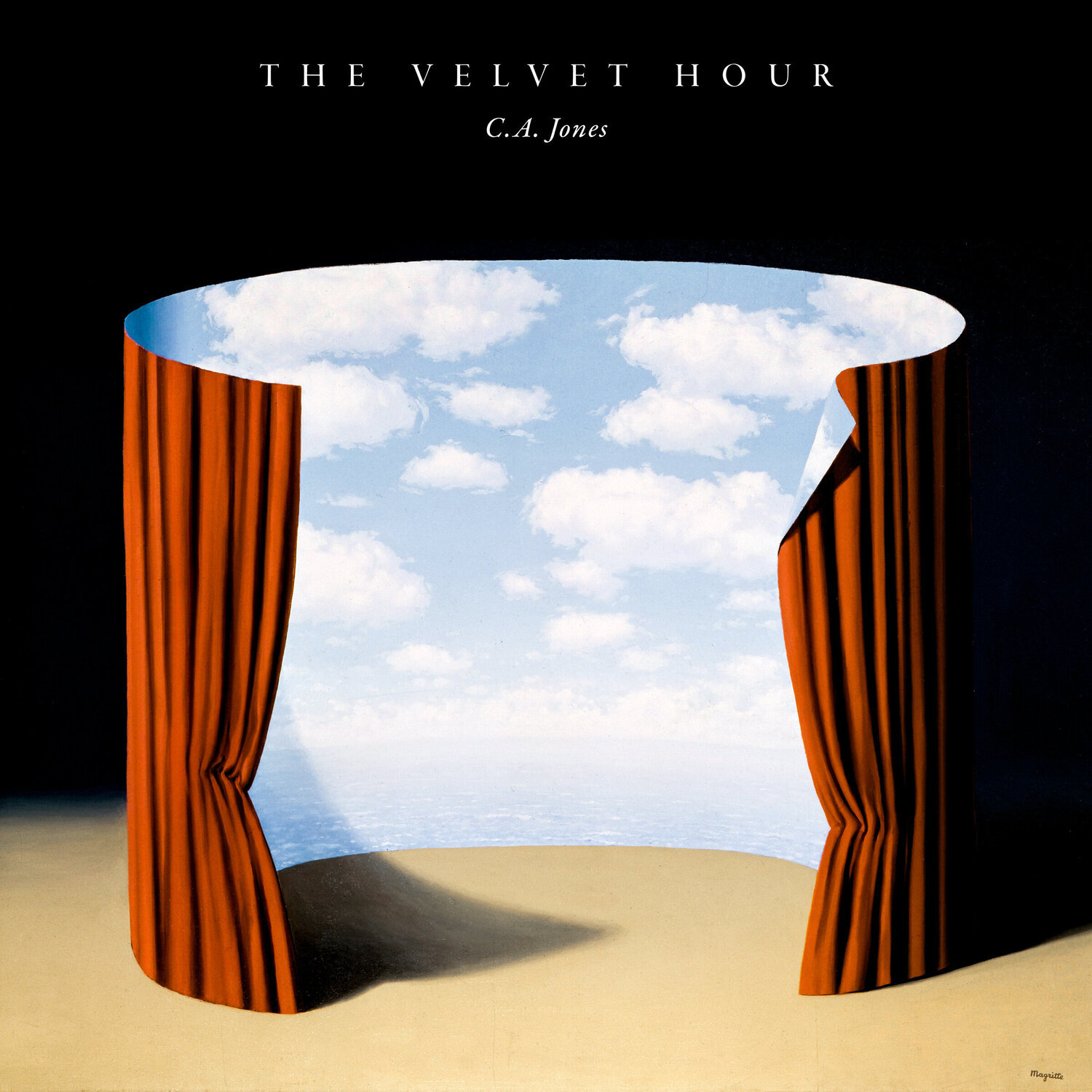Interview
Erin Rae Sings
The Velvet Hour
As the future of music is unknown, artists in Nashville imagine transcendence
“The Velvet Hour” is the genre-bending debut from musician C.A. Jones, featuring collaborations with celebrated Americana artists like Courtney Marie Andrews, Molly Parden, and The Secret Sisters. Erin Rae, who also sings on four of the tracks, discusses what this unique album represents and why she’s still keeping faith in The South.
-
LOST & FOUND: In such a challenging time for musicians and live performers, how have you been able to stay creatively inspired?
Erin Rae: Like everybody, there's been up and down days, or weeks, when you feel a little more off. But overall, it really allowed me to have a reset. I was getting ready to record my next record and that process got delayed significantly. We would have been recording in April of 2020. Now it’s allowed me to reset to make sure I have more songs that I’m proud of. And in the off time, I’ve also gotten to be part of some cool voting initiatives. My friend started a voter advocacy program called Please Vote Nashville. We got to do a telethon for Marquita Bradshaw, who ran for Senate in Tennessee. It was an old school telethon and included as many different kinds of musicians and artists that we could fit. And so, that's been creatively inspiring, and I can take that into projects that I'm coming up with now.
L&F: Up to this point, you’ve primarily worked in the “Americana” category. Is that still a useful music distinction as you plan to get back in the studio?
ERIN: I don't know. The music I grew up on is very much a songwriter tradition of acoustic guitar and storytelling songs.The category of Americana music is a newer label or genre, but it’s been a way that I've connected with other people. And the Americana Music Association has been very good to me. I feel like there are always going to be songs of mine where it makes sense for them to land in that genre - songs like “Wild Blue Wind” that are very C-chord with songwriting in that style. But then some music with the last record landed outside of what would be traditionally thought of as Americana, and that was intentional.
The Velvet Hour sessions at Trace Horse Studio in Nashville; Photography by Lauren Lundy
L&F: That’s a good point that I hadn’t considered: The ways that being associated with the Americana resurgence has helped you identify your people and form collaborations that may not have otherwise. I think that’s where “The Velvet Hour” stands out in terms of its collaborative purity with folks like Courtney Marie Andrews, Molly Parden, and The Secret Sisters - artists who exemplify a certain musical awareness.
ERIN: I feel fortunate to say that I'm friends with all those folks. We all do a little bit of a different thing, and we’re not stepping on each other's toes. It allows us a space to identify with one another, play on similar bills, or do tours together. When I first met C.A. [Chandler Austin] Jones with Courtney, we bonded over antiquing, which I knew he did a lot of. I was like, “That’s my dude right there.” Not too long after that, producer, Juan Solorzano, reached out for me to sing on “The Velvet Hour,” and I was like “Oh my gosh, yes.” It was so cool to work with all these people in different capacities.
L&F: It is a pretty ambitious album that, on one hand, has narrative-driven, mystical themes while, musically, also being very experimental. What speaks to you about The Velvet Hour and how it resonates with this moment when artists are pushing more conceptual boundaries?
ERIN: Going in, I didn’t know what to expect. But I remember just listening to the sound in the studio and thinking, “Wow, this is special.” It's a meticulously crafted piece. I feel like it's of a piece. I was excited to be invited into Chandler's world there, that he has created with this music, with Juan, and with the lyrics. So, to me, it was like, "Oh, this is an artist, and it's like a painting. This person is crafting this piece to introduce himself." It's totally being in charge of what you're presenting, the whole way through, and I think that's really cool.
I walked the streets of my hometown / through the people humming hymns / ain't it funny how memories hold the past in place / hanging in our own museums.
-“A Southern Sentiment”
L&F: One of the songs you sing together on is “A Southern Sentiment,” which seems to resonate with both of your backgrounds in the South, exploring religion, the landscape, and what it means to return to a place. How are you currently navigating this place as a Southern artist?
ERIN: Chandler and I had an almost implied understanding with him coming from Alabama in the same era that I grew up in. With “A Southern Sentiment,” it’s about capturing the feeling and emotion of being here. In terms of my relationship with the South right now, I'm still here. I've spent a lot of time looking up houses for rent in different places, which is one part escape, and one part, just imagining. But my most frequent searches are Florence, Alabama, and Memphis, Tennessee.
L&F: So even your escapes are local?
ERIN: Well, I feel a certain responsibility to stay in the South, especially during this time. This year is putting me more in touch with my value system, to stand up for people. Rather than if we all abandon this place and just let it burn. I don't know that it needs saving, as much as it needs encouraging. One thing that Marquita Bradshaw's campaign ran on, which, unfortunately didn't win this year, was that Tennessee is not a red state - It's just a disillusioned state. We have some of the lowest turnout numbers to vote, for eligible voters across parties.
But then you hear about these little pockets of the South, like this beautiful place in Kentucky that I went to play a show in, where it is very inclusive and very art-centric. There was a mix of all kinds of people at this show, including some that I would be a little bit afraid to play my song, “Bad Mind,” about sexuality in front of, but they loved it. A punk band of all women played right after me, and then an R&B group played after. Experiences like that keep the magic alive. There are a lot of loving people there and that's on both sides. Sorry, I'm on a political roll right now...
L&F: You have my vote. And in terms of the way music is played live, it seems like this is a moment or opportunity for more experiential presentations. “The Velvet Hour” was performed live as an immersive show in Birmingham where the audience was more of a participant than a passive observer. Do those more intimate, experimental ways of presenting resonate with you?
ERIN: I wish I could have been at that show. I am very interested in special ways to present music. I’m thinking about the Kasey Musgraves planetarium show she did at the science center in Nashville, which had a visual component. I’m into the experiential, and I wonder if I was Catholic in a past life. How do we incorporate senses into a show? We obviously have the audio and visual aspect, but there’s more. Like releasing an incense with a record.
L&F: I don’t know if you’re using that as a hypothetical, but you definitely should create some incense for your next release.
ERIN: I know a guy.
Featured on NPR’s World Cafe with review from critic Ann Powers
L&F: But more broadly speaking, though, there seems to be a cultural shift happening of communal engagement and also re-examination. Especially in The South, there are now more honest confrontations with the past. How do you feel art can help us wrestle with the reckoning that we're in, but also, the reconciliation that may come beyond that?
ERIN: I identify as a spiritual person with belief in a higher power, but I'm not clear on what that looks like. My dad always says, and he’s a pretty cosmic dude, that he thinks consciousness goes in cycles. Right now, we're in an awakening phase, and the healing starts when people start seeing what's going on. That's the beginning of a healing time.
Another aspect that has stayed on my mind to incorporate into moving forward is, in whatever I create, to support a mutual aid fund for other musicians to make a “tithe” to. A reparations kind of thing and a small effort for me to recognize all the support that I was given, those many layers of privilege that a young white girl has to write songs and be supported in Nashville. Making a fund available where there's not a lot of hoops to jump through so, for example, a young black creative could go to this fund and just apply for the thousand dollars it takes to make demos. That’s something I really want to support.
L&F: At this intersection, knowing your mom practices Buddhism, I’m curious if you have a personal mantra that you’ve adopted that is helping you stay focused on centered through all of this?
ERIN: Oh, I don't have a personal mantra. My dad does have a mantra, but he's never supposed to tell it. I think he got it from the Maharishi.
L&F: So you don't know it, either?
ERIN: I don't know it. But I think there's a couple of really great books and podcasts, like I've been listening to a book by Eckart Tolle called A New Earth. I’m just staying focused on, "Am I okay in this moment? In this moment, do I have what I need?" And then turning over the rest, one day at a time. That's my words of wisdom.
L&F: That sounds like a good perspective to end with.
ERIN: And maybe I just won't have a mantra, but I'll tell people that I do. Maybe that's easier, who knows?
Contributor
Erin Rae is a singer-songwriter from Jackson, Tennessee. Her 2018 album, Putting on Airs, was released by Single Lock Records and was critically acclaimed as one of the top albums of the year.






